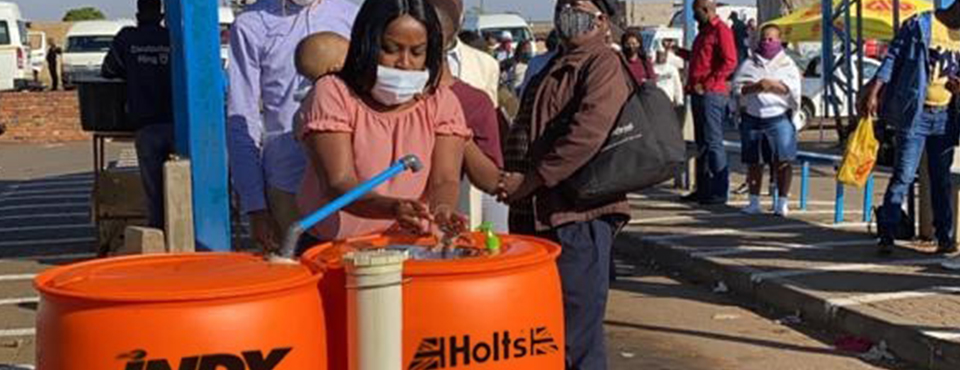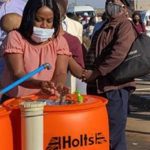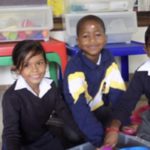An innovative mobile hand-wash station that allows people at taxi ranks to wash their hands with hygienic liquid soap and water to prevent the spread of the Human Coronavirus, has been developed by G.U.D.
G.U.D. Holdings are well known for their premium automotive products, GUD Filters, Safeline Brake Pads, Fram Filters, Indy Oil and Holts. They saw an opportunity to develop a simple hand washing system using their Indy Oil drums that could assist commuters and people living in water-scarce areas to wash their hands.
G.U.D.’s engineers immediately built a prototype to test. The mobile hand-wash station consists of two 210 litre plastic drums which are fixed on a frame with wheels, a pump, water and a liquid hand soap dispenser. This simple design is effective in ensuring people are able to use it effortlessly.
G.U.D.’S BBBEE partner, Filpro, who operates in the informal market, have trialed the units in taxi ranks with high traffic volumes. Filpro conducted demonstrations of the hand-wash station at Vereeniging, Tskane, Tembisa, Pretoria CBD and Orange Farm taxi ranks around Johannesburg during the first week of May 2020. Filpro will facilitate the roll-out of over 100 free mobile hand-wash stations to taxi ranks throughout the country in the coming months.
“We received a very positive response from commuters at the taxi ranks during the trial run of the hand- wash station. People were queuing up to use the hand-wash station to wash their hands before getting into taxis. This simple hygiene practice is crucial to help us overcome the Human Coronavirus pandemic.” says Mboneni Magada, General Manager, Filpro.
G.U.D. Holdings is a deeply rooted South African company that actively drives community upliftment with a number of socio-economic and education-based initiatives to support the underprivileged.
The innovative hand-wash station will not only benefit people at taxi ranks, G.U.D. Holdings are investigating offering the unit to schools, clinics, informal settlements and offices, to keep South Africans safe during this health crisis.



